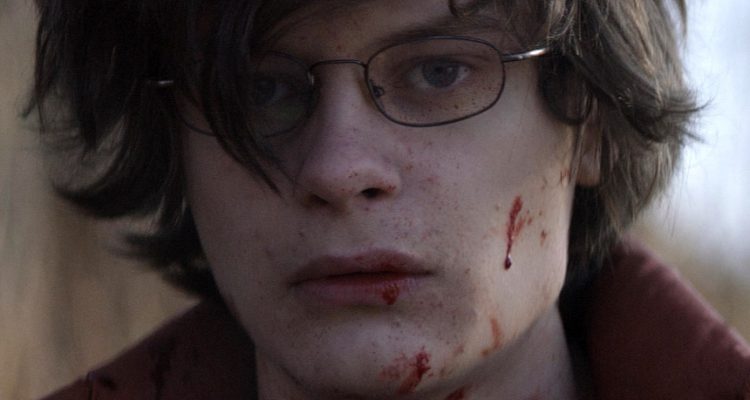At first it feels like a relief that the ironic, vernacular sensibility evoked by the title (“Oh man, the times were like, super dark”) is little in evidence in Kevin Phillips‘ feature debut. For all its flaws, or rather for all the magnitude of its one massive flaw, it is more sincere than arch, and more earnest, certainly in its desire to get its makers onto the radar, than glib. It could be the very standard-bearer for the Bright Futures sidebar of the International Film Festival of Rotterdam, where it premiered.
READ MORE: Cannes Review: Andrew Cividino’s Chilling Coming Of Age Debut ‘Sleeping Giant’
Impressive in its restrained period detail (it’s set in the mid-nineties), excellent camera work (from DP Eli Born) and committed, convincing performances, especially from lead Owen Campbell, it is however also an example of filmmaking reach far outstripping narrative grasp. So while there are many opportunities for clever flourishes en route, the third act sells out the story so grievously that what had the potential to be a compelling and intelligent contribution to the coming-of-age-tinged-with-tragedy category (“Mean Creek” and “River’s Edge” spring to mind, as does Andrew Cividino‘s recent, excellent “The Sleeping Giant“) instead becomes a very polished portfolio piece. Successful though it probably will be as a calling-card, especially for Phillips, that feels a little hollow when it was very nearly so much more.

The film opens with a scene of instant dread: an empty high school corridor with a broad blood smear striping the floor. Though the source of the blood turns out to be a wounded deer, violently mercy-killed in a classroom by a dead-eyed sheriff’s deputy, the words “school shooting” are inevitably floating through our brains. And they’re hardly dispelled by meeting best friends Zach (Campbell) and Josh (Charlie Tahan), two gawky, unprepossessing teenagers whom we first encounter ranking the girls in their yearbook in terms of sexual allure, “Beavis and Butthead“-style. But these sinister cues turn out to be a red herring — Zach and Josh are, initially at least, no more maladjusted than any other boys their age (which is to say, they’re pretty maladjusted). In fact, as evinced in the sweetness of his relationship with his single mother (Amy Hargreaves) and of his hesitant crush on Allison (Elizabeth Cappuccino), Zach especially, is a textbook “good kid.”
READ MORE: First Look: ‘Stranger Things’ Kids Go Ghostbusters In Season 2
They occupy the area in the middle of the high-school hierarchy, not so high they can’t be bullied, but not so low they don’t realize that others are much lower — like Daryl (Max Talisman), the overweight, borderline Tourettic kid from the wrong side of the tracks, with whom Zach and Josh occasionally hang out, a little out of pity. That pity is more on Zach’s side, though — in a touching moment he admonishes Josh for speaking unkindly about Daryl with an unexpected outburst: “No, he’s just poor.” The acknowledgement of the unbridgeable social chasm that divides them lends added poignancy to the guilt both boys feel when, in a well-rendered, messy, authentically banal accident involving his elder brother’s samurai sword, Josh kills Daryl.
Phillips, aided by Campbell’s very strong, sympathetic turn, does a good job evoking Zach’s confusion, panic and ensuing moral turmoil as he, Josh and another kid who happens to be present, agree to cover up the crime. But with Josh retreating to his room, playing video games and refusing to come to school, and Allison suddenly choosing this moment to reciprocate, Zach’s resolve begins to fray at the enormity of what he has conspired in. The film is, at this point and beyond, an incisive portrait of the unconscious narcissism of cossetted suburban kids for whom the worst thing imaginable is not to have killed someone, but the idea of getting into trouble for it.

The minute tick-tocking of Zach’s tortured conscience complete with haunted dream sequences and a ratcheting sense of claustrophobia, provides more than enough compelling material to have powered the film right through to a thoughtful, compassionate finale. So it’s doubly frustrating when, at what feels suspiciously like the Robert-McKee-approved screenplay page number for Beginning of Act 3, an unnecessary new development is introduced, and then ill-advisedly followed through on, right to its sensationalist genre-tinged conclusion. This does give Phillips the chance to show another string to his bow — the violence may be redundant but it’s nastily well done. But it comes at the steep cost of all of the film’s psychological and moral stakes, which had been so skillfully accruing.
Rather the way calling terrorists “lone wolves” absolves their community of any blame for their actions, the unconvincing third act turn has the effect of rendering all Zach’s moral see-sawing moot — the difference between a narrative twist and a narrative cheat. And more’s the pity because until then, though distinctly redolent of the “Stranger Things” school of late-20th-century nostalgia, “Super Dark Times” had been fleshing out its familiar framework with flair and feeling. As it is, both the hip title and that abrupt left-turn into genre territory suggest that Philips is straining to be a punchier, “cooler” filmmaker than he naturally is, when what he naturally is — a sensitive director of actors, a sincere storyteller and a skilled all-round craftsman — is far more valuable. [B-]

